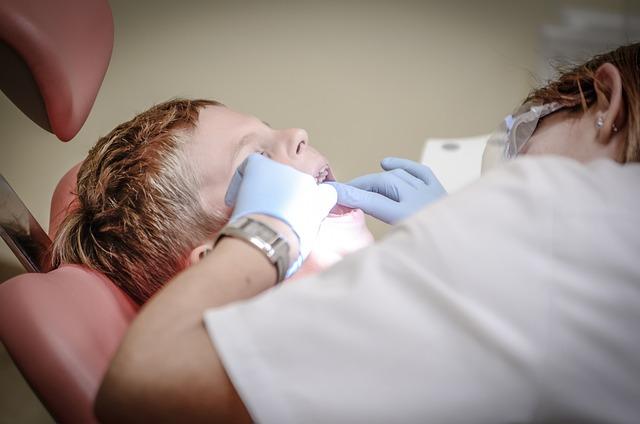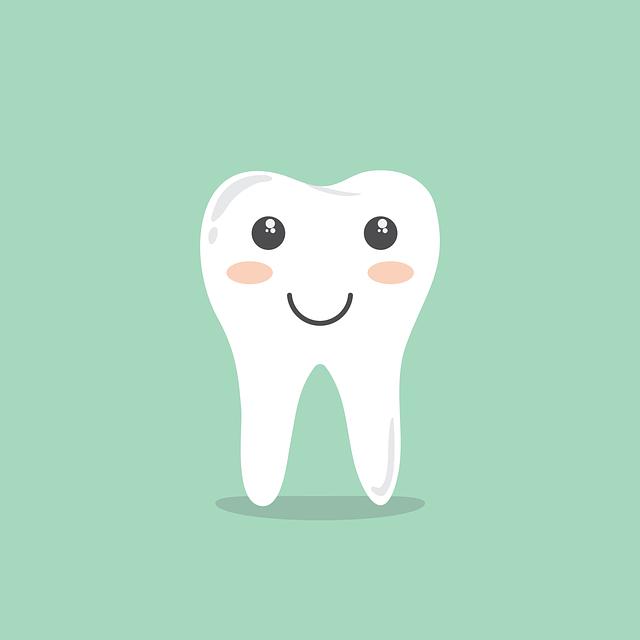What Does Gargling Salt Water Do for Teeth: Insights
Have you ever wondered about the magical powers of salt water on your teeth? Well, wonder no more! In this article, we will dive into the depths of dental knowledge to uncover the truth behind the age-old practice of gargling salt water. Prepare to be enlightened as we explore the insights and benefits that this simple yet powerful remedy can bring to your oral health. So, grab a glass of warm water, add a pinch of salt, and get ready to discover the wonders that await within this humble concoction.
1. The Science Behind Gargling Salt Water: Understanding its Effects on Dental Health
Gargling salt water is a common home remedy that has been used for centuries to promote dental health. But have you ever wondered why it is so effective? Let’s dive into the science behind this simple yet powerful practice.
1. Salt’s antibacterial properties: Salt acts as a natural disinfectant, killing harmful bacteria that can cause dental problems like gum disease and bad breath. When you gargle salt water, the salt particles attack these bacteria, reducing their numbers and preventing further infection.
2. Reduction of inflammation: Salt water gargling helps to reduce inflammation in the mouth and gums. It works by drawing out excess fluid from the tissues, relieving swelling and discomfort. This can provide relief for conditions such as canker sores or post-dental procedure irritation.
3. Enhanced wound healing: Salt water gargles promote faster healing of oral wounds and sores. The salt solution helps to cleanse the affected area, removing debris and promoting the growth of new, healthy tissue. This can aid in the healing process for mouth ulcers or minor cuts.
Incorporating salt water gargling into your oral hygiene routine can be a simple and effective way to maintain dental health. Remember to always use warm water and dissolve the salt completely before gargling. While it is an excellent complementary practice, it is essential to consult your dentist for any serious dental issues.

2. Exploring the Benefits of Gargling Salt Water for Teeth: A Closer Look
Gargling salt water is a simple yet effective practice that can provide several benefits for your teeth and overall oral health. This age-old remedy has been used for centuries and continues to be recommended by dentists worldwide. Let’s take a closer look at some of the advantages this practice offers:
- Reduces inflammation: Gargling salt water can help alleviate gum inflammation and reduce swelling. The salt acts as a natural disinfectant, killing harmful bacteria and soothing any discomfort in the process.
- Promotes healing: If you have any minor cuts or sores in your mouth, salt water gargles can aid in the healing process. Salt has antiseptic properties that help cleanse the wound and prevent infection, allowing your mouth to heal faster.
- Relieves sore throat: In addition to benefiting your teeth, gargling salt water can also provide relief for a sore throat. The salt helps to reduce inflammation and clear away mucus, providing temporary relief from discomfort.
Remember, while gargling salt water can be beneficial, it should not replace regular oral hygiene practices such as brushing and flossing. It is always best to consult with your dentist for personalized advice on maintaining optimal oral health.

3. How Gargling Salt Water Can Improve Oral Hygiene: Key Insights
Salt water gargling is a simple yet effective practice that can greatly enhance your oral hygiene. Here are some key insights on how this age-old remedy can benefit your overall oral health:
- Reduces inflammation and soothes sore throat: Gargling with warm salt water can alleviate inflammation and irritation in the throat. The salt helps reduce swelling by drawing out excess fluid from the tissues. This can provide relief from a sore throat caused by infections or allergies.
– Kills harmful bacteria: Salt has natural antibacterial properties that can help eliminate harmful bacteria in the mouth. Gargling with salt water can reduce the number of bacteria present, thus minimizing the risk of developing oral infections such as gingivitis or periodontitis.
– Promotes healing of oral wounds: Salt water gargling can accelerate the healing process of oral wounds, such as mouth sores or ulcers. The saline solution helps cleanse the area, reduce swelling, and prevent infection, allowing the wound to heal faster.
To incorporate salt water gargling into your oral hygiene routine, simply dissolve half a teaspoon of salt in a glass of warm water. Take a sip, tilt your head back, and gargle the solution in your mouth for about 30 seconds before spitting it out. Repeat this a few times a day, especially after meals or when experiencing throat discomfort. Remember not to swallow the solution.
Incorporating this easy and cost-effective practice into your daily routine can significantly improve your oral health. Give it a try and experience the benefits of salt water gargling for yourself.
4. The Role of Salt Water Rinse in Promoting Dental Health: Expert Opinion
The use of salt water rinse has been widely recommended by dental experts for promoting dental health. It serves as an effective adjunct to regular brushing and flossing routines. Here are some key points highlighting the role of salt water rinse:
- Antibacterial properties: Salt water has natural antibacterial properties that help in reducing bacteria in the mouth. This can aid in preventing gum infections and reducing bad breath.
- Relief from oral discomfort: Salt water rinse can provide temporary relief from oral discomfort, such as gum inflammation or mouth ulcers. It has a soothing effect on the gums and can promote healing.
- Reduces swelling: The salt water rinse can help reduce swelling and inflammation in the gums. This can be beneficial for individuals with gum diseases like gingivitis or periodontitis.
- Economical and easily accessible: Salt water rinse is a cost-effective oral care option as it requires only salt and water, which are readily available in most households. It is also simple to prepare and use.
It is important to note that while salt water rinse can be beneficial, it should not replace regular dental hygiene practices. Brushing twice a day, flossing, and regular dental check-ups are still essential for maintaining optimal oral health. Consulting a dental professional is always recommended for personalized advice.
5. Understanding the Mechanism: How Gargling Salt Water Works on Teeth
Gargling salt water is a simple and effective home remedy that can help improve oral health and alleviate certain dental problems. The mechanism behind how salt water works on teeth lies in its ability to create an environment that is unfavorable for the growth of harmful bacteria, reduce inflammation, and promote healing. Here’s a breakdown of how gargling salt water can benefit your teeth:
- Kills bacteria: Salt has antimicrobial properties that can help kill bacteria in the mouth. When you gargle salt water, the salt particles come into contact with the bacteria on the teeth and gums, disrupting their cellular structure and preventing their growth.
- Reduces inflammation: Salt water has anti-inflammatory properties that can help reduce swelling and inflammation in the gums. It can be particularly beneficial for individuals with gum disease or gingivitis, as it helps alleviate discomfort and promote healing.
- Improves wound healing: Gargling salt water can aid in the healing of oral wounds, such as mouth sores or ulcers. The salt water solution helps cleanse the area, remove debris, and promote faster healing by creating an ideal environment for tissue repair.
Overall, gargling salt water is a cost-effective and easily accessible method to maintain good oral hygiene. It can be used as a complementary approach, alongside regular brushing and flossing, to keep your teeth and gums healthy.
6. Salt Water Rinse for Teeth: An Easy and Effective Home Remedy
Salt water rinse is a simple yet highly effective home remedy for maintaining oral health. It is an age-old practice that has been used for centuries to treat various dental problems. The natural antiseptic and antibacterial properties of salt help in promoting gum health, reducing inflammation, and preventing tooth decay.
Using a salt water rinse is incredibly easy. Here’s how you can prepare and use it:
- Mix half a teaspoon of salt in a glass of warm water. Make sure the salt is completely dissolved.
- Take a mouthful of the solution and swish it around in your mouth for about 30 seconds.
- Spit out the solution and repeat the process a few times.
It is recommended to use a salt water rinse at least once or twice a day, especially after meals or before bed. However, it’s important to note that this remedy should not replace regular brushing and flossing, but rather complement them. It is best to consult with your dentist before incorporating any new oral care routine to ensure it aligns with your specific needs.
7. The Surprising Benefits of Salt Water Gargle for Maintaining Oral Hygiene
Many people are unaware of the surprising benefits that salt water gargle can offer for maintaining oral hygiene. This simple yet effective technique can provide numerous advantages for your overall oral health. Here are some key benefits:
- Relieves sore throat: Salt water gargle is known to provide relief from a sore throat by reducing inflammation and soothing the discomfort.
- Kills bacteria: The natural antibacterial properties of salt can help eliminate harmful bacteria in the mouth, reducing the risk of infections and promoting healthier gums.
- Reduces bad breath: Gargling with salt water can help neutralize odors and freshen your breath by eliminating bacteria and food particles that may be causing unpleasant smells.
- Helps heal mouth sores: Salt water has healing properties that can aid in the recovery of mouth sores, such as canker sores or small cuts in the mouth, by reducing inflammation and promoting faster healing.
- Alleviates dry mouth: Salt water gargle can help stimulate saliva production, providing relief for individuals suffering from dry mouth, a condition that can lead to various oral health issues.
By incorporating salt water gargle into your oral hygiene routine, you can enjoy these surprising benefits and maintain a healthier mouth. It’s a simple and cost-effective method that can have a significant impact on your overall oral health.
8. Unlocking the Potential: How Gargling Salt Water Can Aid in Preventing Tooth Decay
Gargling salt water is a simple and effective method that can aid in preventing tooth decay. This age-old remedy has been used for centuries and is supported by scientific evidence.
How does it work?
- The salt in the water creates an inhospitable environment for bacteria in the mouth, reducing their ability to thrive and cause tooth decay.
- Gargling salt water helps to remove food particles and debris stuck between teeth, reducing the risk of plaque buildup and cavities.
- Salt water also has a mild antiseptic effect, which can help kill bacteria and alleviate gum inflammation.
How to gargle salt water effectively:
- Dissolve half a teaspoon of salt in a glass of warm water. Make sure the water is not too hot to avoid burning your mouth.
- Take a small sip of the salt water and tilt your head back.
- Gently swish the solution around your mouth for about 30 seconds, making sure to reach all areas.
- Spit out the water and repeat the process a few times a day, especially after meals.
Gargling salt water is a safe, cost-effective, and natural way to promote oral health and prevent tooth decay. However, it is important to note that this method should not replace regular brushing, flossing, and visits to the dentist, as they are essential for maintaining proper oral hygiene.
9. Salt Water Rinse: A Natural Solution for Soothing Sore Gums and Relieving Dental Pain
Salt water rinse is a natural and effective solution for soothing sore gums and relieving dental pain. By creating a saline solution with warm water and salt, you can harness the power of salt’s antibacterial and anti-inflammatory properties to promote healing and reduce discomfort. Here are some key benefits of using a salt water rinse:
1. Reduces inflammation: Salt water rinse helps to reduce inflammation in the gums, which is often the cause of soreness and discomfort. The warm saline solution helps to soothe the gums and alleviate pain.
2. Kills bacteria: Salt has natural antibacterial properties, making it an excellent choice for maintaining oral hygiene. Gargling with salt water can help kill bacteria in the mouth, reducing the risk of infections and promoting healing.
3. Promotes healing: The salt water rinse promotes healing by increasing blood flow to the gums and speeding up the natural healing process. It also helps to remove debris and food particles, keeping the mouth clean and preventing further irritation.
To create a salt water rinse, simply dissolve half a teaspoon of salt in a cup of warm water. Gently swish the solution in your mouth for about 30 seconds, making sure to reach all areas of the gums. Spit out the solution and repeat a few times a day or as needed. Remember not to swallow the mixture.
Incorporating a salt water rinse into your oral care routine can be a simple and natural way to find relief from sore gums and dental pain. Give it a try and experience the soothing benefits for yourself.
10. Incorporating Salt Water Rinse into Your Dental Routine: Tips and Recommendations
Incorporating salt water rinse into your dental routine can be a beneficial addition to maintaining good oral hygiene. Here are some tips and recommendations to help you make the most of this simple yet effective practice:
- Choose the right salt: Opt for natural sea salt or Himalayan pink salt as they contain essential minerals and trace elements. Avoid using table salt, as it may contain additives that can be harsh on your gums.
- Prepare the solution: Dissolve half a teaspoon of salt in a cup of lukewarm water. Stir until the salt is completely dissolved. Lukewarm water is gentle on the gums and helps enhance the effectiveness of the rinse.
- Timing is key: Incorporate salt water rinsing into your dental routine by doing it after brushing and flossing. This will ensure that any remaining bacteria or debris are flushed away, leaving your mouth feeling refreshed and clean.
- Swish and spit: Take a mouthful of the prepared salt water solution and swish it around your mouth for 30-60 seconds, making sure to reach all areas. Spit out the solution and rinse your mouth with plain water to remove any residual salt taste.
Remember, salt water rinsing should not replace regular brushing and flossing, but rather complement them. If you have any specific dental concerns or conditions, it’s always best to consult with your dentist for personalized recommendations. With proper incorporation, salt water rinsing can contribute to a healthier mouth and fresher breath.
Frequently Asked Questions
Q: What is the purpose of gargling salt water for teeth?
A: Gargling salt water is a simple yet effective technique that promotes oral health and provides several benefits for your teeth.
Q: How does gargling salt water benefit teeth?
A: Gargling salt water can help to reduce inflammation, soothe gum sensitivity, and alleviate toothaches by drawing out excess fluid from the tissues surrounding the teeth.
Q: Can gargling salt water help with oral hygiene?
A: Yes, gargling salt water can aid in maintaining good oral hygiene. It acts as a natural antiseptic, helping to kill bacteria and prevent the formation of plaque, which can lead to cavities and gum disease.
Q: Is gargling salt water a reliable remedy for toothaches?
A: While it may not provide a definitive cure, gargling salt water can temporarily alleviate toothache pain by reducing inflammation and soothing the affected area.
Q: How often should one gargle salt water for optimal dental benefits?
A: For optimal dental benefits, it is recommended to gargle salt water at least once or twice a day. However, it is always best to consult with your dentist or oral health professional for personalized advice.
Q: Can gargling salt water replace regular brushing and flossing?
A: No, gargling salt water should never substitute regular brushing and flossing. It should be seen as a supplementary practice to maintain oral hygiene and support overall dental care.
Q: Are there any risks or side effects associated with gargling salt water?
A: Gargling salt water is generally safe for most individuals. However, excessive use or swallowing large amounts of salt water may lead to dehydration or electrolyte imbalances. It is important to use the proper concentration of salt and not to swallow the mixture.
Q: How should one prepare salt water for gargling?
A: To prepare salt water for gargling, simply dissolve half a teaspoon of salt in a glass of warm water. Stir until the salt is fully dissolved and use the solution for gargling.
Q: Is gargling salt water suitable for everyone?
A: Generally, gargling salt water is safe for most individuals. However, individuals with high blood pressure or kidney problems should consult their healthcare provider before incorporating this practice into their oral hygiene routine.
Q: Can gargling salt water whiten teeth?
A: Gargling salt water does not possess any properties that can whiten teeth. Its main benefits lie in promoting oral health, reducing inflammation, and providing temporary relief for toothaches.
Wrapping Up
In conclusion, the practice of gargling salt water can offer several benefits for maintaining healthy teeth and gums. By creating an environment that is hostile to harmful bacteria, salt water can help reduce plaque buildup and prevent the formation of cavities. Additionally, the natural antiseptic properties of salt can aid in healing minor oral wounds and soothing gum inflammation. However, it is important to remember that gargling salt water should only be used as a complementary measure and not as a substitute for regular dental care. As always, it is advisable to consult with your dentist or healthcare professional for personalized advice. By incorporating salt water gargling into your oral hygiene routine, you can take a proactive step towards improving your dental health and achieving a brighter smile.






